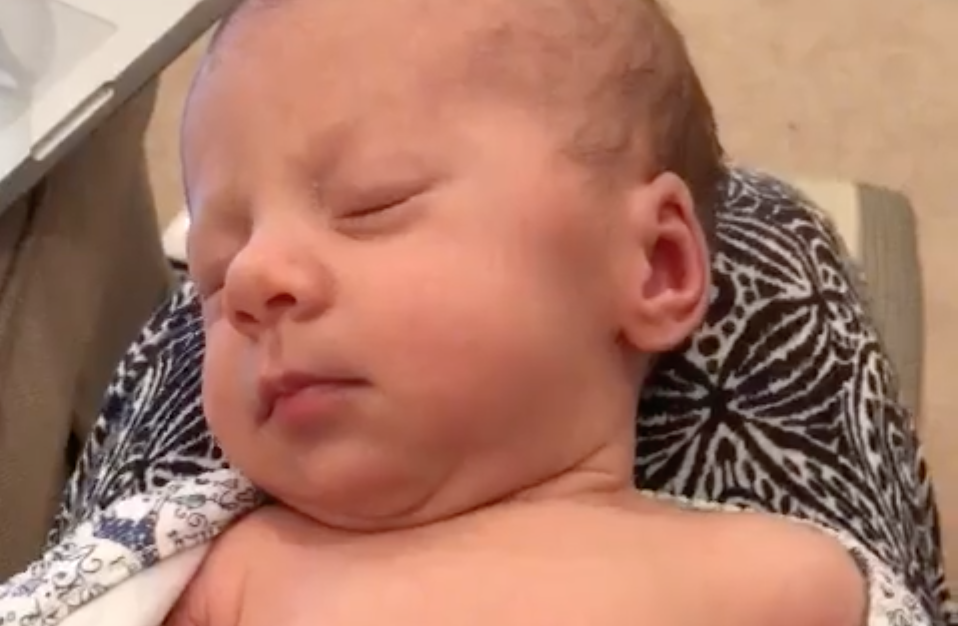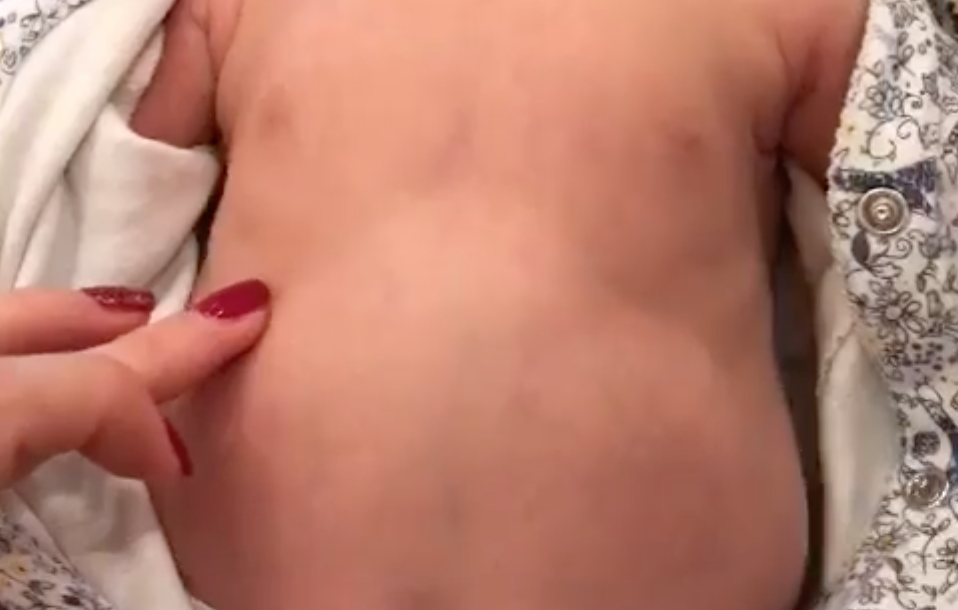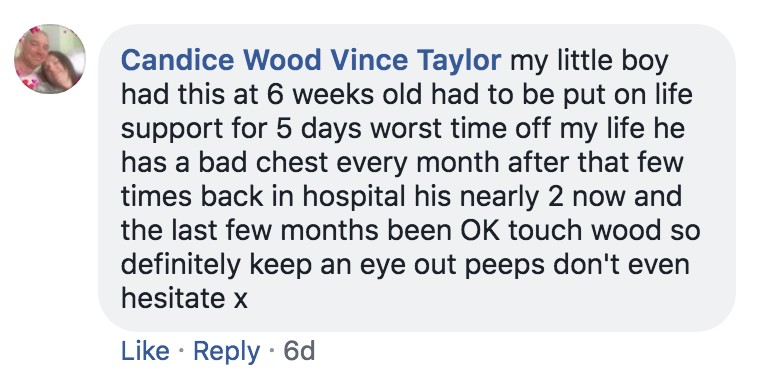
It seems like last year's dreadful flu season just ended, but already we're getting ready to head into another one. It's tough to keeps kid well during this time of year, especially when they're small babies. Most parents know to be on the lookout for fevers and runny noses. But as mom Charlie O'Brien shared on Facebook, there's one easy-to-miss baby cold symptom that could let you know your little one needs to be rushed to the doctor ASAP.
O'Brien shared a video on Facebook that shows her 4-week-old, Luna, breathing hard and fast as she sleeps.
"I stumbled across this on my phone and thought it may be useful to share," the mom wrote in the video's caption. "When Luna was 4 weeks old she had a really quiet day of sleeping and barely any crying (unusual for Luna!). I was watching her sleep next to me and realized it didn’t look right. I unbuttoned her babygrow [onesie] and this is what I saw."
The problem is the way the baby's ribs suck in as she inhales -- it's a quiet sign that they're having trouble breathing.

"Sucking in at ribs is a sign to get your baby or child to hospital," O'Brien warned. "She had bronchiolitis and her oxygen levels were very low. Luckily after a night on oxygen she made a very good recovery."
The video was originally shared last year, but it's making the rounds again as grateful parents prep for cold season.

Many are also sharing stories about times they noticed their own babies breathing this way.

One mom even wrote that O'Brien's warning saved her baby's life.

"I saw this video last week. [In the] early hours of Sunday morning she was breathing heavily, and when I looked at her chest, you could see her ribs," the parent explained in a follow up comment. "[I] realized she had to get to hospital. If I didn’t see this video I’d have though, 'aww she will be fine, let’s just catch our flight home and go to the doctors when we are back.'"
The type of breathing noticed by O'Brien is called retraction, and it's one of the major signs of respiratory distress.
The American Academy of Pediatrics also notes that signs of respiratory distress in infants includes nasal flaring, grunting, and tachypnea, which is any breathing that is abnormally rapid. Retraction can also be associated with cardiac distress in some cases. If you notice any of these signs, it's important to seek medical attention so a doctor can make an official diagnosis.




